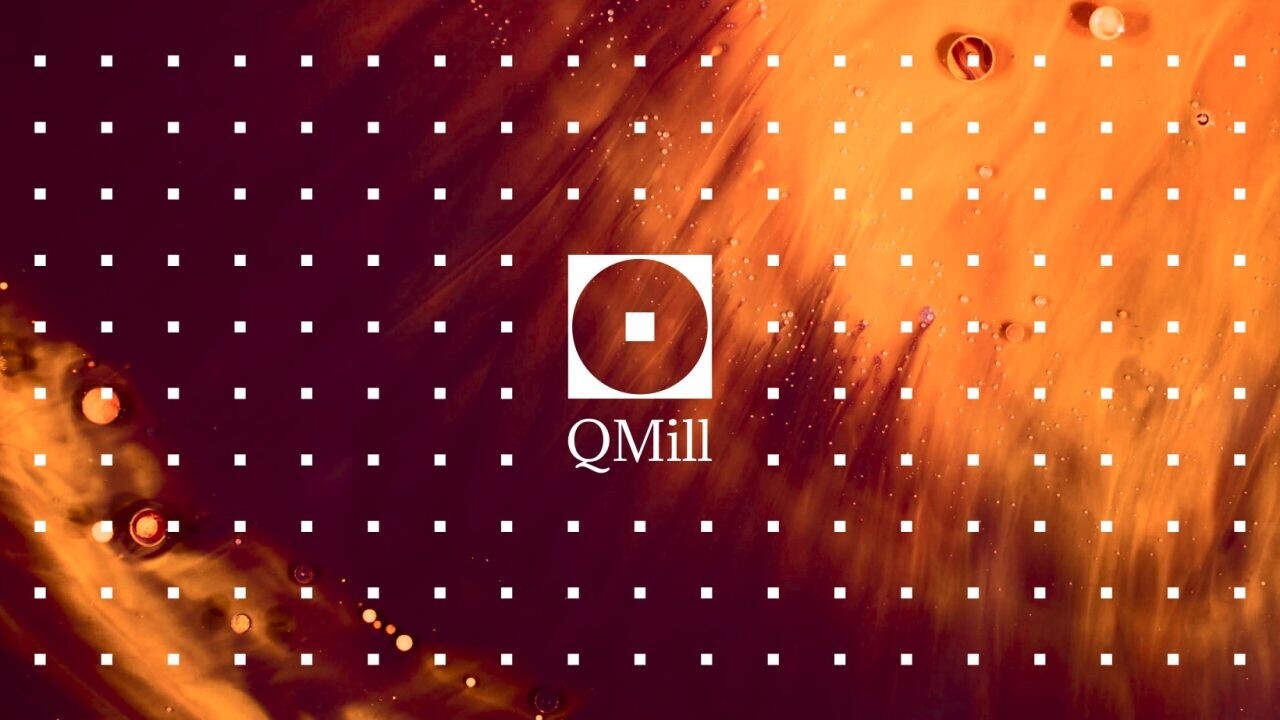
Espoo outside of Helsinki is turning into quite the quantum hub. The city’s latest addition to the Finnish quantum computing ecosystem is QMill.
The newly minted algorithm startup just raised €4mn in seed funding to leverage near-term hardware to deliver real benefits to industry through quantum computing.
“There is momentum growing at the moment [in quantum], and investors can see that a lot of companies are experimenting with quantum computing now — but so far they have not found quantum advantage,” Hannu Kauppinen, QMill co-founder and CEO, told TNW. “We are the ones who will be the first to provide them with that.”
Quantum advantage refers to the point when a quantum computer is able to solve a problem faster or more efficiently than classical high-performance computers. Hitting this milestone will also unlock tremendous value across a number of industries.
The problem is that despite significant progress, quantum computers remain stuck in the so-called NISQ (Noisy-Intermediate Scale Quantum) era. These machines are prone to errors, especially when attempting to scale and control a larger number of qubits.
Thus, the potential of the technology remains unfulfilled, along with its commercial benefits — unless algorithms can be sufficiently optimised to run on near-term systems.
Mikko Möttönen, one of QMill’s other co-founders and its chief scientist, has been in the field of quantum hardware for about 20 years. He says he has seen significant improvement over the past five years and that it is only “a matter of time” before we have an error-corrected full-fledged quantum computer.
“However, at the moment no one knows how to use the present day machines or the machines that will be there in the next 10 years, for useful cases — for cases that businesses can benefit from,” Möttönen added. “What we are doing is using the near-term hardware for quantum advantage.”
Founder team sprung from the Finnish quantum community
The funding round was led by Finland-based Maki.vc as well as Antler, and joined by industrial technology investor Kvanted.
The funds will go toward the development of QMill’s highly resource-efficient quantum algorithms. These will work for applications that require up to 300 physical qubits to solve optimisation problems for industries including finance, telecommunications, real estate, energy, and supply chain logistics.
“QMill has identified a great opportunity to leverage the current noisy intermediate-scale quantum era, rather than waiting for the quantum-computing ecosystem to evolve over the next decade,” said Pirkka Palomäki, partner at Maki.vc, adding that the investment was driven by the “exceptional quality” of the QMill team.
Indeed, the QMill founders’ resumes are impressive. QMill is the brainchild of Möttönen, who is professor of Quantum Technology at Aalto University and VTT; Kauppinen, who is the former chief technology officer of Nokia Technologies; Ville Kotovirta, former head of VTT’s Quantum Algorithms and Software Team; and Toni Annala, an L.E. Dickson Instructor at the University of Chicago.

The company currently has 10 people on the team, and now plans to use the newly raised funds to bring on 20 more. “We are hiring quantum physicists, mathematicians, but also people who have expertise in computer science, machine learning, as well as in computer simulations,” said Kauppinen.
Much of that talent can be found in Finland, a country that has traditionally done a tremendous job in supporting and nurturing its deep tech industry. QMill has also received a €1mn grant from Business Finland, the Finnish Ministry of Employment and the Economy’s innovation, trade, and investment support branch.
“What is also important is that Business Finland helps to organise a community of companies and research groups here,” Kauppinen said. “Because we have a tradition to cooperate in a pre-competitive mode, join forces. We’re not competing against each other, but we plan to create an industry here, and exports from Finland.”
Get the TNW newsletter
Get the most important tech news in your inbox each week.




